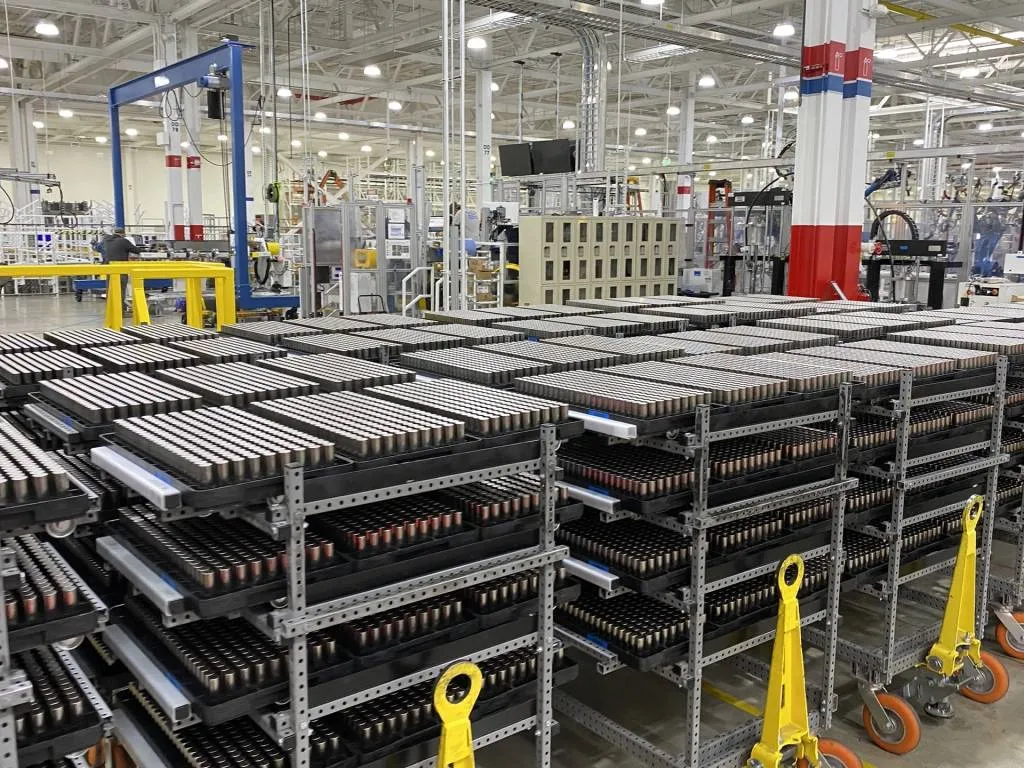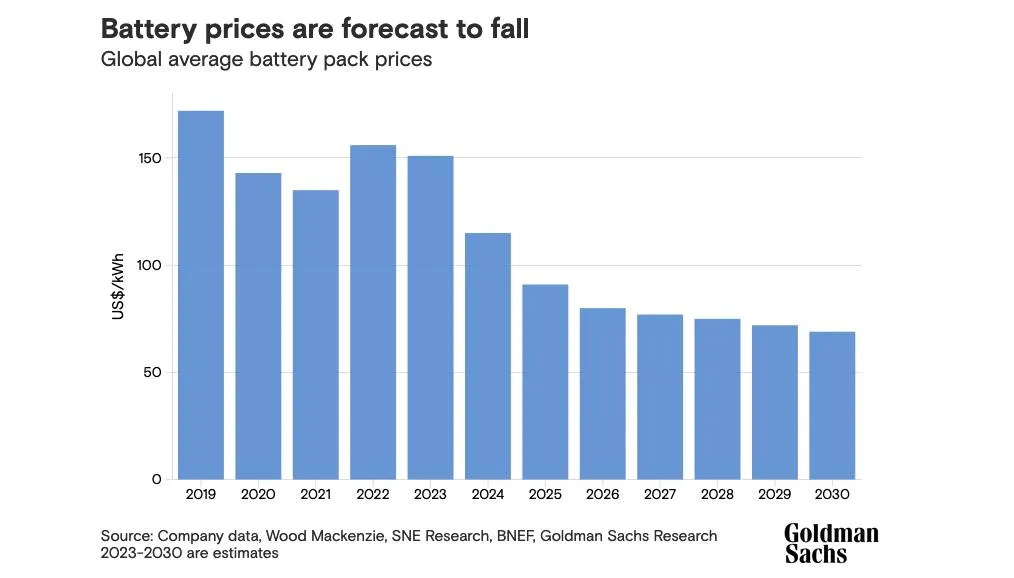A number of factors may be converging to lower EV battery prices, which in turn could boost EV demand, according to new analysis from Goldman Sachs.
Analysts expect nearly a 40% decline in EV battery prices between 2023 and 2025, and for EVs to "reach breakthrough levels in terms of cost parity" with internal-combustion vehicles in some markets as early as next year—without subsidies. That's due to lower materials cost and the effect of a current stagnation in EV sales allowing supply to catch up with demand, according to the analysis.

Stack of Rivian battery cells
Goldman has lowered its forecast for growth in global battery demand in 2024 to 29% year-over-year from a previous projection of 35%. The firm estimates that battery demand increased 31% in 2023.
This is putting less pressure on the battery materials market, cooling demand for metals like nickel and lithium (something other analysis has pointed out) and helping to lower battery prices, which Goldman points out can represent one-third the cost of an EV. Battery innovation, whether it's new solid-state chemistries or better manufacturing processes could help lower costs as well, according to the analysis.
EV battery prices soared in 2022, then started to drop again last year, as materials costs went up and down. But the Energy Department has noted that even when battery costs rose in 2022, adjusted for inflation they were part of a long downward trend.

Goldman Sachs EV battery price forecast March 2024
Battery prices will continue to fall significantly through 2025 and more or less level off after that, analysts predict. And that could allow EVs to reach larger market shares more quickly. Goldman analysts now predict that EVs could reach 50% market share in the U.S. by 2030, and 68% in the European Union by that year.
This mostly aligns with recent predictions from the International Council on Clean Transportation (ICCT). In analysis published last month, the ICCT argued that an increase in the lithium supply could make EVs cheaper than gasoline cars in a few years. But super-sized batteries in large trucks and SUVs are one of a few factors that could put the brakes on the trend.












